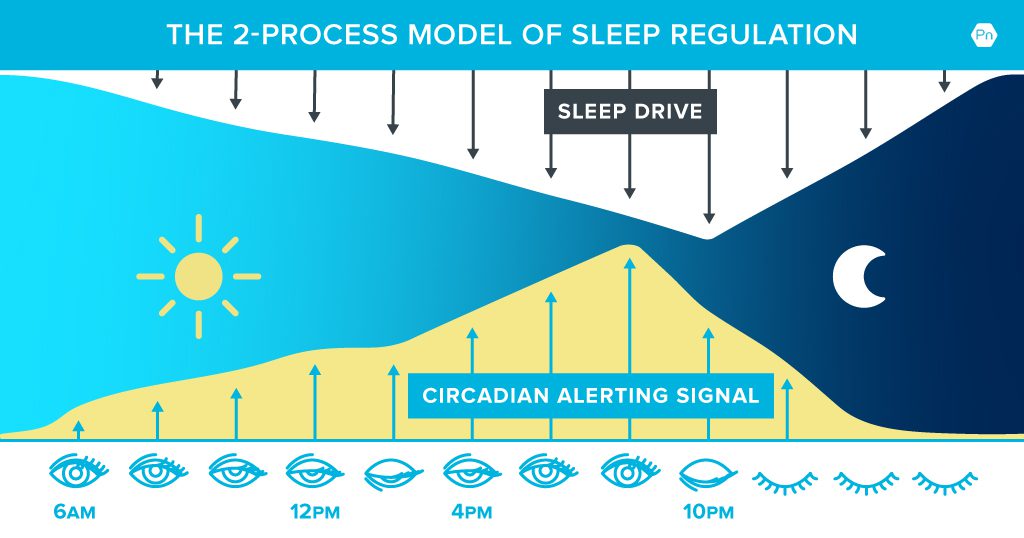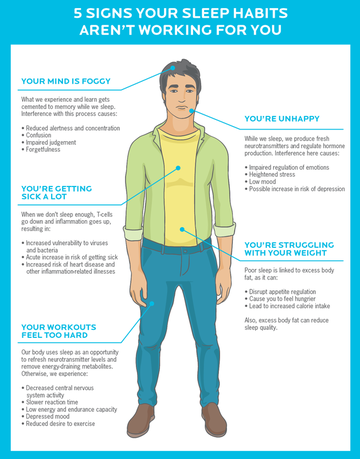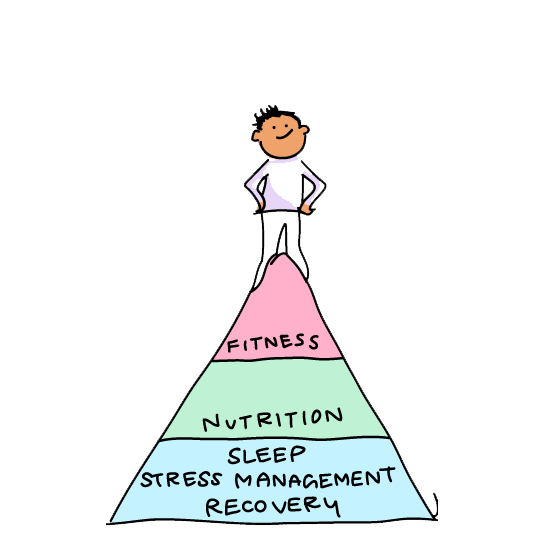"Recharge and Rejuvenate: The Science Behind a Good Night's Sleep"
Sep 21st 2023
Snooze and Gain: The Power of a Well-Rested Mind
Unveiling the extraordinary link between restful nights and enhanced cognitive abilities – you won't believe what science reveals!
Do you ever find yourself waking up feeling groggy, unable to focus, or just plain exhausted? Well, you're not alone. In today's fast-paced world, a good night's sleep has become a rare commodity for many of us. However, the importance of quality sleep cannot be stressed enough. Beyond just feeling refreshed, a good night's sleep plays a vital role in our overall health and well-being. In this curated blog post, we will explore the significance of a good night's sleep and provide you with handpicked tips to maximize its benefits.
Understanding the Sleep-Wake Cycle
Our sleep patterns are controlled by what is known as the sleep-wake cycle. This internal biological clock regulates our sleep and wakefulness throughout the day. It is essential to understand the key stages of sleep that occur during the cycle to appreciate the rejuvenating effects of a good night's sleep.
When we sleep, our bodies undergo key stages, including light sleep, deep sleep, and REM (rapid eye movement) sleep. Each of these stages serves a crucial purpose in promoting physical and mental rejuvenation. Light sleep helps with memory consolidation, while deep sleep restores energy levels and repairs tissues. REM sleep, on the other hand, contributes to cognitive functions and emotional well-being.
Creating a Sleep-friendly Environment
Creating a sleep-friendly environment can significantly improve the quality and duration of your sleep. Here are some handpicked tips to transform your bedroom into a haven for restorative slumber:
- Optimize the room temperature, aiming for a cool and comfortable setting.
- Reduce noise levels by using earplugs, a white noise machine, or even earphones playing calming music or nature sounds.
- Invest in a good-quality mattress and pillows that provide adequate support and comfort for your specific needs.
- Consider using aromatherapy, such as lavender or chamomile scents, to create a soothing atmosphere and signal your body that it's time for sleep.
- Dim the lights in your bedroom, creating a calm and relaxing ambiance that encourages your body's natural sleep-wake cycle.
Establishing a Consistent Bedtime Routine
Do you ever find it difficult to fall asleep, even when you're physically exhausted? This is where a consistent bedtime routine can come to the rescue. By establishing a series of calming activities before bed, you can signal to your brain and body that it's time to wind down and prepare for sleep. Here are some curated ideas for your bedtime routine:

Image courtesy of www.precisionnutrition.com via Google Images
- Read a book or listen to an audiobook in a genre that relaxes you. Avoid thrilling or suspenseful reads that may keep your mind stimulated.
- Practice relaxation techniques such as deep breathing exercises, yoga, or progressive muscle relaxation.
- Engage in a soothing skincare routine, using products with calming ingredients like chamomile or aloe vera.
Managing Electronic Devices and Stimulants
In today's digitally centered world, electronic devices have become an integral part of our daily lives. However, they can significantly disrupt our quality of sleep. Here are some tips for managing electronic devices:
- Avoid using electronic devices with screens, such as smartphones, tablets, or laptops, close to bedtime. The blue light emitted from these devices suppresses the production of melatonin, a hormone that regulates sleep.
- If it's not possible to avoid screens, consider using blue light filters or specialized apps that reduce blue light emission.
In addition to managing electronic devices, it's important to be mindful of stimulants that can interfere with a good night's sleep:
- Limit your caffeine intake, particularly in the afternoon and evening, as it can stay in your system for hours and disrupt your ability to fall asleep.
- Avoid nicotine and alcohol close to bedtime, as they can impair the quality of your sleep.
Exercise and Sleep Quality
Regular exercise not only benefits your physical health but also has a positive impact on sleep quality. Engaging in moderate aerobic exercise, such as brisk walking or cycling, helps to regulate your sleep-wake cycle and promote deeper sleep. It's best to schedule your exercise sessions earlier in the day, allowing your body ample time to wind down before bed.

Image courtesy of www.firstxvperformance.com via Google Images
Healthy Eating Habits for a Good Night's Sleep
Believe it or not, what you eat and drink can have a significant impact on your sleep quality. Here are some curated suggestions for sleep-friendly foods and beverages:
- Enjoy a cup of herbal tea before bed. Chamomile, lavender, or valerian root teas can have relaxing effects on the mind and body.
- Snack on foods rich in magnesium, such as almonds, bananas, or dark chocolate, as this mineral can help calm the nervous system.
- Incorporate foods rich in tryptophan into your evening meals. Tryptophan is an amino acid that helps produce serotonin, promoting feelings of calm and relaxation. Turkey, chicken, tofu, and spinach are excellent sources of tryptophan.
Strategies for Managing Stress and Anxiety
We all know how difficult it can be to fall asleep when our minds are racing with stress and anxiety. Managing these factors is crucial in achieving quality sleep. Here are curated relaxation techniques to help alleviate stress and anxiety before bed:
Image courtesy of www.precisionnutrition.com via Google Images
- Try guided meditation or mindfulness practices to quiet the mind and promote deep relaxation.
- Practice deep breathing exercises, focusing on long exhalations to activate the body's relaxation response.
- Consider journaling to unload your thoughts and worries before bed, allowing your mind to feel more at ease.
Natural Herbs To Promote Sleep
Traditional Chinese medicine (TCM) offers a range of herbs and remedies to help with sleep-related issues. It's important to consult with a qualified TCM practitioner or healthcare professional before using any herbal remedies. Here are some Chinese herbs commonly used for sleep:
- Valerian Root (Zhizhushen/茺蔚子): Valerian root is known for its calming effects and can be helpful for insomnia and anxiety.
- Chamomile (Yinqiao/洋甘菊): Chamomile tea is a popular choice to promote relaxation and improve sleep quality.
- Lavender (Xunyicao/薰衣草): Lavender is often used in aromatherapy and can help reduce stress and promote better sleep.
- Jujube Seeds (Suanzaoren/酸枣仁): Jujube seeds are commonly used in TCM to calm the mind and improve sleep.
- Reishi Mushroom (Lingzhi/灵芝): Reishi is an adaptogenic herb that may help regulate the body's stress response, potentially improving sleep.
- Schisandra Berry (Wuweizi/五味子): Schisandra is known for its adaptogenic properties, which can help the body adapt to stress and support better sleep.
- Chinese Skullcap (Huangqin/黄芩): This herb has a calming effect and may be used to treat insomnia and anxiety.
- Magnolia Bark (Houpo/厚朴): Magnolia bark is often used in TCM to ease anxiety and insomnia.
- Astragalus Root (Huangqi/黄芪): Astragalus is an adaptogenic herb that can help the body cope with stress, which may indirectly improve sleep.
A Treasure Trove of Sleep Wisdom: On Our Sleep Page
In Conclusion
Prioritizing a good night's sleep is essential for our overall health and well-being. By curating these tips and incorporating them into your lifestyle, you can maximize the benefits of quality sleep. Remember, it's not just about feeling refreshed and energized; it's about nurturing your mind and body, promoting optimal functioning throughout the day. Start implementing these curated strategies and watch as your sleep quality and overall wellness improve.


